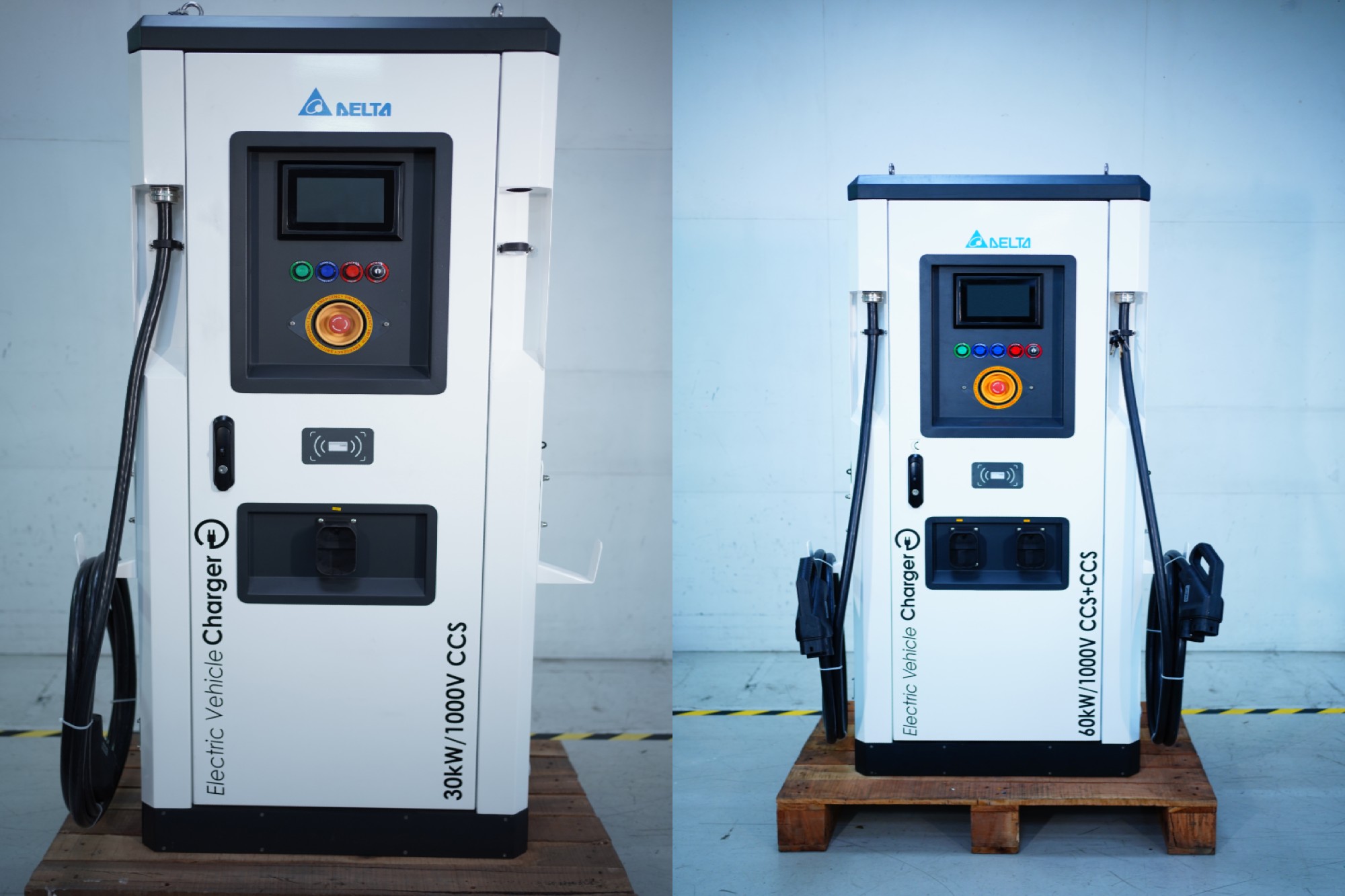Smart charging solutions mitigate grid overloads during peak periods
By Staff Report May 15, 2025 12:29 pm IST
By Staff Report May 15, 2025 12:29 pm IST

Delta’s cutting-edge EV charging solutions, such as DC fast chargers, AC chargers, and solar-integrated charging systems, are enabling the rapid growth of a robust and energy-efficient charging network.
As India marches towards becoming a global leader in clean energy and sustainable transportation, the expansion of EV charging infrastructure plays a pivotal role. Amidst growing concerns about energy security and environmental sustainability, the country must find ways to diversify energy sources, integrate renewables, and optimise its energy consumption while managing the growth of EV adoption. The link between energy security and EV infrastructure development is becoming increasingly crucial, especially with the nation’s ambitious target of achieving 30 percent EV penetration by 2030.
Energy security challenges
Energy security challenges in India stem from its reliance on imported oil and the rising energy demand in key sectors, such as transportation. To mitigate this, a growing need exists to diversify energy sources, including tapping into renewables like solar, wind, and hydropower. With the rapid expansion of the EV sector, it is critical to ensure that charging stations do not overburden the energy grid but contribute to a more resilient and balanced energy mix.
Integrating renewable energy into the grid is a key component of energy security. As EV adoption rises, implementing renewable-powered EV charging stations (Hybrid and Microgrid models) becomes essential. These stations can reduce dependence on fossil fuels and greenhouse gas emissions. Moreover, the shift to cleaner energy sources promotes national security by reducing reliance on energy imports and diversifying power generation sources. This is particularly important for India, which imports about 85 percent of its crude oil.
Hybrid energy systems (HES) involve multiple energy generation, storage, and/or conversion technologies integrated through an overarching control framework or physically to achieve cost savings and enhanced capabilities, value, efficiency, or environmental performance relative to the independent alternatives. A microgrid arrangement keeps the power flowing during an outage by disconnecting from the grid, which is what is called islanding. The system’s controller seamlessly switches from grid power to the microgrid’s local power sources when it senses an outage.
According to a recent NITI Aayog report on “Integration of Electric Vehicles Charging Infrastructure with Distribution,” it is critical to integrate EV charging infrastructure with the existing electricity distribution system without jeopardising grid stability. Unchecked EV charging could lead to grid overloads during peak periods, but adopting smart charging solutions can mitigate these risks. Delta’s energy-efficient GREEN EV charging station, which incorporates load management systems and can be powered by renewable energy sources, is designed to tackle these challenges effectively.
Government policies supporting EV adoption
The Indian government’s commitment to energy security and sustainable transport is evident in its policies. The FAME scheme is a key policy initiative that provides subsidies to manufacturers and buyers of electric vehicles, stimulating demand for EVs across the country. FAME II, introduced in 2019, has a budget outlay of ₹10,000 crores to incentivise the development of EVs and associated infrastructure, including charging stations.
On September 29, 2024, the Ministry of Heavy Industries launched the PM Electric Drive Revolution in Innovative Vehicle Enhancement (PM E-DRIVE) scheme to accelerate the adoption of electric vehicles (EVs) in India. With a total subsidy outlay of ₹10,900 crore, the scheme will be implemented from October 1, 2024, to March 31, 2026. It focuses on enhancing charging infrastructure and developing a robust EV manufacturing ecosystem nationwide.
The proposed scheme aims to promote electric vehicles (EVs) through various components, including demand incentives for e-2W, e-3W, e-ambulances, e-trucks, and other emerging EV categories. It also includes grants for creating capital assets like e-buses and charging station networks and funds for upgrading testing agencies. Additionally, it covers the scheme’s administration and project management agency fees.Additionally, state governments are taking steps to implement supportive EV policies. For example, states like Delhi, Maharashtra, and Tamil Nadu offer additional subsidies, tax exemptions, and land allocations to set up EV infrastructure. These policies aim to lower EV prices and encourage public and private sector participation in building EV charging networks, thus accelerating the adoption of electric vehicles.
Collaborating strategically with OEMs, system integrators
Delta is addressing the renewable energy integration aspect by developing charging stations powered by solar energy. These stations help reduce the load on the grid and further the nation’s clean energy goals. Delta provides the support needed to expand India’s EV infrastructure through its products and solutions. Delta is focusing on providing scalable EV charging infrastructure to meet the growing demand for electric mobility.
Delta has been playing a significant role in advancing India’s EV charging infrastructure. Delta’s cutting-edge EV charging solutions, such as DC fast chargers, AC chargers, and solar-integrated charging systems, enable the rapid growth of a robust and energy-efficient charging network.
The future of energy security and EV charging in India
As India continues to transition toward a more sustainable energy future, the role of EVs in reducing greenhouse gas emissions and enhancing energy security cannot be overstated. By addressing the challenges of load management, renewable integration, and smart infrastructure, India is poised to become a global leader in EV adoption.
Delta Electronics contributes significantly to this transformation through its innovative products, partnerships, and commitment to clean energy. With government policies supporting the growth of EV infrastructure and companies like Delta leading the charge, India’s path to energy security and sustainable transportation looks promising.
In conclusion, India’s energy security challenge is intricately linked to its transition toward electric mobility. The nation can accelerate EV adoption while ensuring energy security by fostering a holistic approach integrating renewable energy, smart grid solutions, and supportive government policies. Delta’s role as a pioneer in this field exemplifies the critical importance of technological innovation and public-private collaboration in achieving a sustainable and energy-secure future for India.

We use cookies to personalize your experience. By continuing to visit this website you agree to our Terms & Conditions, Privacy Policy and Cookie Policy.